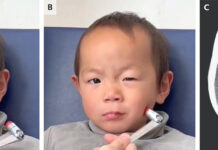Case Presentation
A 51-year-old British man with Jamaican heritage had been diagnosed with schizoaffective disorder. Over the past five years, he has faced numerous hospitalizations and received ongoing support from a community team. His most recent admission was due to concerning reports of aggressive behaviour, public disturbances, a hunger strike, and threats towards staff members. The mental health team noticed a deterioration in his behaviour and delusional beliefs. This included a conviction that outside forces were controlling him.
Investigations
Following an assessment, doctors determined that his mental health had declined due to noncompliance with prescribed medications and the use of illicit substances. Consequently, they detained him under Section 2 of the Mental Health Act. Upon admission to the psychiatric ward, he exhibited symptoms consistent with a manic episode, such as rapid speech and grandiose delusions. To address this, doctors discontinued his previous medications. They initiated him on aripiprazole, a medication he had responded well to during previous admissions.
However, shortly after receiving a high-dose aripiprazole injection, he developed delirium and a significant increase in the levels of creatine kinase (CK), an enzyme found in the muscles. This raised concerns about potential complications, and doctors promptly transferred him to the emergency department for further evaluation. Despite being asymptomatic, his CK levels continued to rise. This prompted admission to a general medical ward for close monitoring and management. While his CK levels gradually improved during his hospital stay, there was no definitive cause for the elevation. They made the decision to discontinue aripiprazole and switch him to an alternative antipsychotic regimen. This resulted in the stabilization of his CK levels and an improvement in his mental state.
This case highlights a rare but serious adverse reaction to aripiprazole characterized by a significant increase in CK levels. It exhibited a concerning rise indicative of a potential neuroleptic malignant syndrome (NMS) reaction. Although such reactions are uncommon, they pose a challenge in clinical management, particularly in distinguishing them from other causes of CK elevation.
Literature Review: Neuroleptic Malignant Syndrome
Similar cases involving other atypical antipsychotics, such as olanzapine and risperidone, have been documented, highlighting the need for vigilant monitoring and prompt intervention. While CK elevation is often benign and self-limiting, extreme elevations warrant consideration of more serious complications, including NMS. Understanding the underlying mechanisms and risk factors associated with such reactions is crucial for effective management and prevention of adverse outcomes.
Elevated CK levels can occur due to various factors, including muscle injury, rhabdomyolysis, and certain medications. In patients receiving antipsychotic treatment, significant CK elevation is typically associated with NMS, a potentially life-threatening condition characterized by fever, muscle rigidity, and altered mental status. Doctors generally consider atypical antipsychotics, including aripiprazole, less likely to induce NMS due to their pharmacological properties.
The pathophysiology of NMS remains poorly understood, with dopamine receptor blockade implicated as a central mechanism. Other theories suggest an immune-mediated response triggered by certain medications, resulting in muscle breakdown and CK release.
Management
Management of Neuroleptic Malignant Syndrome and related complications requires a multidisciplinary approach, involving close monitoring of clinical and laboratory parameters, early recognition of symptoms, and timely intervention. While aripiprazole is generally well-tolerated, clinicians are vigilant for rare but serious adverse reactions, such as extreme CK elevation. Doctors should regularly monitor CK levels during antipsychotic therapy to ensure patient safety and optimal treatment outcomes.
Conclusion: Neuroleptic Malignant Syndrome
In conclusion, this case highlights the importance of recognizing and managing rare adverse reactions to antipsychotic medications, such as aripiprazole-induced CK elevation. While such reactions are uncommon, they can have serious implications for patient safety and require prompt intervention. Further research is needed to better understand the underlying mechanisms and risk factors associated with these reactions, enabling clinicians to provide more effective and personalized care for patients with mental health disorders.




